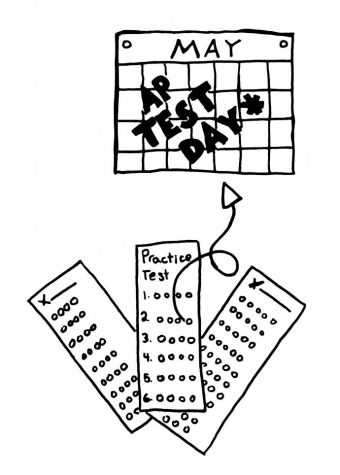Teach students to love learning, not testing
March 15, 2019
Acquiring college credits, developing an overwhelming portfolio of advanced classes, and preparing for our post-high school lives are presented to us as the essential goals of our education from the minute we walk through Liberty’s doors as freshmen.
We live in a very forward-thinking society, and in many regards that is a good thing. But when it comes to our education—something that sticks with us for our entire lives—we should strive to have it encompass more than just preparation for the future.
This preparation-minded mentality is fostered in numerous courses at Liberty, being especially evident in the curriculum of AP courses. In these classes, students learn how to answer certain types of multiple choice questions and respond to timed-write prompts as part of the curriculum in order to score the maximum number of points on the final exam in May. This type of information is only useful for a few months—after the students take the test, there is no need to have the ability to rapidly fill in a multiple choice bubble sheet.
But even if this test-oriented curriculum teaches skills and knowledge to students that are practical in other situations, there are certainly more memorable and interesting ways to convey this same information.
Instead of structuring the curriculum around a test, all classes—not just AP courses—should teach engaging, original material that benefits students well beyond the date of an exam. This type of curriculum would cause students to study with the intention of learning instead of something as temporary as passing a test.
Then, students would gain much more from their classes because they would be able to find meaningful content and enjoyment in what they are learning—a difficult math problem would no longer appear to be a tedious series of numbers but rather a puzzle waiting to be solved, and an essay would no longer be a formulaic endeavor but rather a unique explanation of one’s thoughts.
When students learn for the sole purpose of learning, the information will benefit them and influence them far more than the college credit earned or any other temporary form of preparation.
Planning for the future is a well-intended goal, but when it reduces a student’s education to a schedule full of test preparation, it must leave the classroom.


